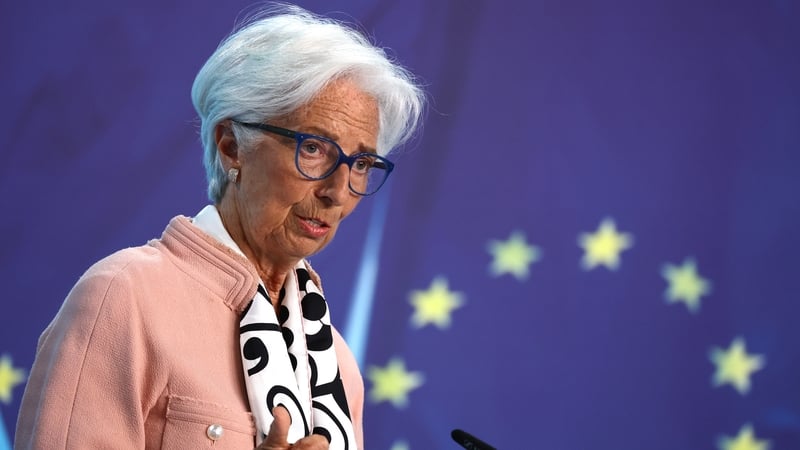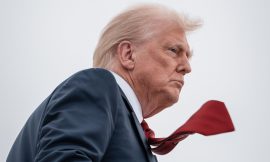The European Central Bank has cut interest rates for the seventh time in a year, looking to prop up an already struggling economy that will take a large hit from US tariffs.
The bank announced a cut of one-quarter of a percentage point, which brings its benchmark deposit rate down from 2.5% to 2.25%.
The move will immediately benefit tracker mortgage customers and put downward pressure on other rates.
The ECB has been lowering borrowing costs as post-pandemic price pressures retreat and recent trade-related turmoil on global markets is adding to the case for further policy easing.
“Increased uncertainty is likely to reduce confidence among households and firms, and the adverse and volatile market response to the trade tensions is likely to have a tightening impact on financing conditions,” the ECB said.
We need your consent to load this rte-player contentWe use rte-player to manage extra content that can set cookies on your device and collect data about your activity. Please review their details and accept them to load the content.Manage Preferences
“These factors may further weigh on the economic outlook for the euro area,” it added.
While US President Donald Trump has paused most tariffs, many remain in place and volatility in financial markets has already done damage to the economy.
This led the vast majority of economists polled by Reuters to expect today’s cut, which lowered the rate that the ECB pays on bank deposits by 25 basis points to 2.25%.
This is the top of the 1.75%-2.25% range that the ECB has defined as “neutral”, neither boosting nor restricting economic activity.
Accordingly, the ECB removed a reference to interest rates being “restrictive” from its press release.

European Central Bank President Christine Lagarde said that rate-setters had to be “agile” in the face of the uncertainty stirred up by President Trump’s trade policy.
“We have to stand ready for the unpredictable,” Ms Lagarde said at a press conference.
“It makes a lot of sense to be ready to be agile,” she added.
Ms Lagarde said last month the ECB estimated that growth across the 20 countries that share the euro could fall by half a percentage point if the United States imposes a 25% tariff on EU imports and the bloc retaliates, erasing about half the euro zone’s expected expansion.
But that estimate has been seen as too optimistic, particularly if a trade war wreaks havoc with investor, business and consumer confidence.
While the ECB expected a trade war to increase inflation by 50 basis points, the turmoil caused by erratic US trade policy could equally detract from it.
Nearly all financial indicators impacting prices have shifted dramatically in recent weeks.
The euro has firmed 9% amid the volatility and trades at an all-time high on a trade-weighted basis, energy prices are sharply lower, growth is slowing, and China, the number one target of US tariffs, could dump some of its output on Europe.

A number of investment banks have trimmed their forecasts for euro zone inflation this year, often lowering it to or below the ECB’s 2% target.
“Disinflationary forces are piling up,” HSBC wrote in a note as it cut its inflation forecast to 1.9% for this year and 1.8% for the next.
Ahead of the meeting, investors were seeing at least two more cuts this year with some even pricing a third as growth falters.
Meanwhile, the ECB president expressed her confidence in the head of the US Federal Reserve Jay Powell after Mr Trump called for his “termination”.
“I have a lot of respect for my friend and esteemed colleague Jay Powell,” Ms Lagarde told journalists in Frankfurt.
“We have a solid, steady relationship amongst central bankers.”




